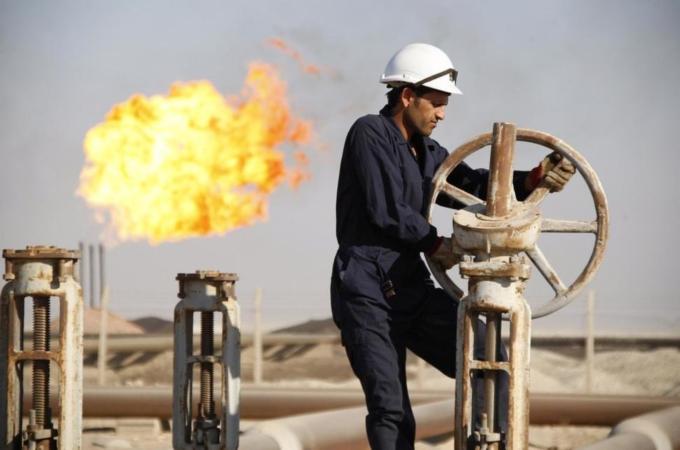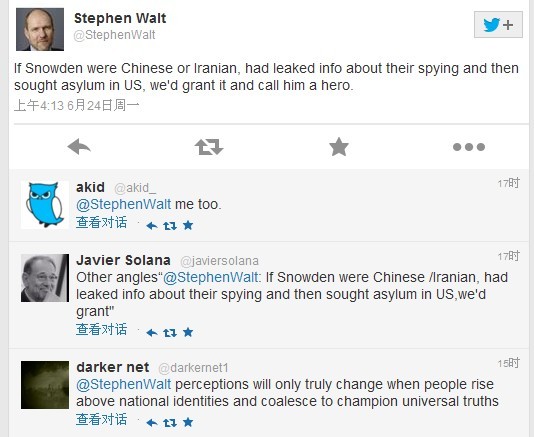Why China Might Be A Better SuperpowerUnlike the US, China does not have a substantial history of invading and subjugating the inhabitants of far-flung lands.Last Modified: 25 Jun 2013 14:14 |
 | |
 China is one of the most influential commercial players in Iraq's oil boom [Reuters] |
Until the mid-20th century, China suffered what has been termed as the "Century of Humiliation" - a period of subjugation and oppression by Western military powers (as well as the Japanese). During this time Western imperialists flooded the country with drugs, raped and murdered its subjects with impunity and - due to both insatiable greed and abject ignorance to concepts such as culture and history - wantonly desecrated the priceless monuments of ancient Chinese civilisation. At the outset of this period - when hordes of English soldiers destroyed Beijing's ancient Summer Palace in an orgy of looting and arson - Major General Charles Gordon said, "You can scarcely imagine the beauty and magnificence of the places we burnt" - which in many ways was emblematic of the entire carnivorous project of Western imperialism in Asia, Africa and Latin America. Today, however, Rabindranath Tagore's prophecy about China seems to have come to fruition, and the modern heirs to rapacious criminals such as Gordon now openly lament their fear of rising Chinese power. In the place of the former colonial forces such as England and France, however, today, sits the US, the world's only remaining military superpower. While since the fall of the Soviet Union the US has been widely considered to be the preeminent nation globally, in recent years it has fallen into an observable malaise. Due to its wars of aggression, institutionalised torture, unaccountable assassination programmes and general contempt for the rule of law, the American government has today sacrificed whatever was once considered admirable about its role in international affairs. Furthermore, it is fast sacrificing what was once most admirable about it domestically, as once-cherished civil liberties are being forfeited and its citizens are being compelled to submit to an opaque and pervasive surveillance state. While China is far less free domestically, in international affairs the country continues to ascend both economically and in terms of international influence. It is thus worth asking, is this a positive development for the world at large? Could China be a more responsible, less violent and more constructive superpower than the US? Historical contrasts Over its history, the US has undoubtedly provided much for the betterment of mankind in the fields of science, arts, good governance and human development. The country continues to produce some of the most exceptional contributors in all these areas, and for all the cruel excesses of the US government the American people are among the most generous, hospitable and high-achievingpopulation in the world. The US is by no means a monolith and its impressive ideological diversity continues to be one of its enduring strengths. |
However, while the US was founded on the principle of national self-determination, throughout its history, its foreign policy has been based on denying that same right to others around the globe. From the early 20th century invasions and occupations of the Philippines and Haiti, the CIA coups against democratic governments in Iran and Chile, up to the near genocidal military onslaughts against the Vietnamese and Iraqi people, the US - in a relatively short time frame - has left a trail of destruction around the world which is without parallel in human history.
While couched in the deeply cynical rhetoric of freedom and democracy, the body count left by US militarism and colonial exploitation runs to millions. It has been well-documented that what has motivated these brutally malicious policies (aside from naked greed) is a crude sense of racism and a chauvinistic belief in "Manifest Destiny" - the same ruthlessly imperialistic ideology which helped justify the holocaust committed against the indigenous people of the Americas and which drove the Atlantic slave trade.
China, despite existing as a unified country 4,000 years longer than the US, conspicuously does not have such a history of invading and subjugating the inhabitants of far-flung lands. While it has had its share of localised conflicts, there is nothing in its history - even over the many centuries during which China was as at the peak of its historical power - that is remotely comparable to the industrialised exploitation and mass-murder which has characterised the Western colonial project.
Despite being one of the wealthiest and powerful countries on earth for most of its existence, China's relationship with the outside world has traditionally been characterised more by Sino-centric inertia and peaceable exchange than by armed pillage and the export of violence to foreign lands. As surmised by the famed 19th century scholar of Buddhism, Zhang Taiyin:
"Asian countries… rarely invaded one another and treated each other respectfully with the Confucian virtue of benevolence."
While China has in many ways been torn from its traditional culture by traumatic recent encounters with Western imperialist powers and the subsequent upheavals of Mao's Cultural Revolution, the country's traditionally harmonious worldview ("harmony" being a recurring theme in Chinese political culture) is still seen in modern China's global relations.
China's peaceful rise
To achieve its foreign policy goals in Iraq, the US embarked on a decades-long campaign of violence against the Iraqi people which culminated in the brutal invasion and occupation of the country in 2003. While the US succeeded in destroying the lives of millions of innocent Iraqi civilians, it failed to create an outcome which was of benefit to it and ultimately left the country with its influence and prestige greatly eroded.
China, however, has in many ways emerged as the "winner" of the Iraq war, as it is today by far the biggest beneficiary of Iraqi crude oil contracts. In stark contrast to the US primitive and brutal approach to the country, China has used soft-power to great effect and is now the most influential commercial player in the country's oil boom.
Thanks to its efforts China is today recognised as a major investor in the future of Iraq. According to the New York Times, Chinese executives are now even impressing their Iraqi counterparts by speaking with them in flawless, Iraqi-accented Arabic.
The contrast between China's culturally sensitive approach and the contemptuous and violent attitude taken by the US in Iraq cannot be overstated. In fact, these contrasts are in many ways a reflection of the differing worldviews and historical backgrounds of the two countries.
While the US seems committed to exert imperial hegemony over the Middle East using brute military force and punitive economic blockades against civilians, China has publically committed to a policy of "peacefully rising" and has built mutually beneficial and respectful relationships throughout the region.
While Chinese polices are no less self-interested, the country's forthright pragmatism is a refreshing alternative to the blatantly cynical and manipulative moralising rhetoric of Western powers. Shallow accusations of Chinese colonialism in Africa (based on Chinese commercial investments in the region) appear borne more of Western fears of Chinese power than of legitimate concerns about African self-determination.
Evidence suggests that China's influence in Africa has been built on the basis of mutual economic interest and its investments have coincided with historically unprecedented economic growth among the people of the continent. The contrast with the unrelentingly murderous and rapacious history of actual Western colonialism in Africa could not be starker.
A multipolar world
China today is a burgeoning player in global affairs, making forays into the Israel/Palestine conflict, taking material steps to confront environmental issues and pushing its "soft-power" approach to international relations to new lengths. In the face of its rising stature many pundits and political figures have attempted to harp upon the inevitable growing pains of any rising power and cite this as evidence of its immaturity.
While China is by no measure perfect, for years the country and its people have been unjustly demonised by those whose own hands are caked in the blood of untold number of innocents. Allegations of purported Chinese malevolence should be viewed for what they most often are - the hysterical propaganda of those who are fearful and insecure about competition for their own privileged position.
The US however should not fear the rising tide of Chinese influence. Rather, it should warmly welcome it. In a unipolar world, the US government was free to act out its most self-destructive tendencies and was devoid of any pressure to reform in order to compete with a major adversary. Indeed, the US achieved its most admirable feats when it was facing serious competition from Soviet Russia.
While China is not yet a large enough player to individually balance the US on most major issues, its status is rising. When working within the emerging "BRICS" bloc of countries, it is capable of constraining unilateral US actions. This is good for both the American and Chinese people, as the existence of a multipolar world will mean that neither government will be able to delve into unchecked excess and military adventurism.
However, as China's relationship with the US and other major powers develops, there is no doubt that the country has finally come to equal terms with its former oppressors. China's ascendance signifies the fruition of Tagore's prophecy and the long victory of the Chinese people over Western imperialism.
If China continues its remarkably successful policy of "peacefully rising" while pursuing continued self-improvement and reform, it will remain both a welcome player in global affairs and a responsible model for other aspiring world powers.
Murtaza Hussain is a Toronto-based writer and analyst focused on issues related to Middle Eastern politics.
Follow him on Twitter: @MazMHussain






